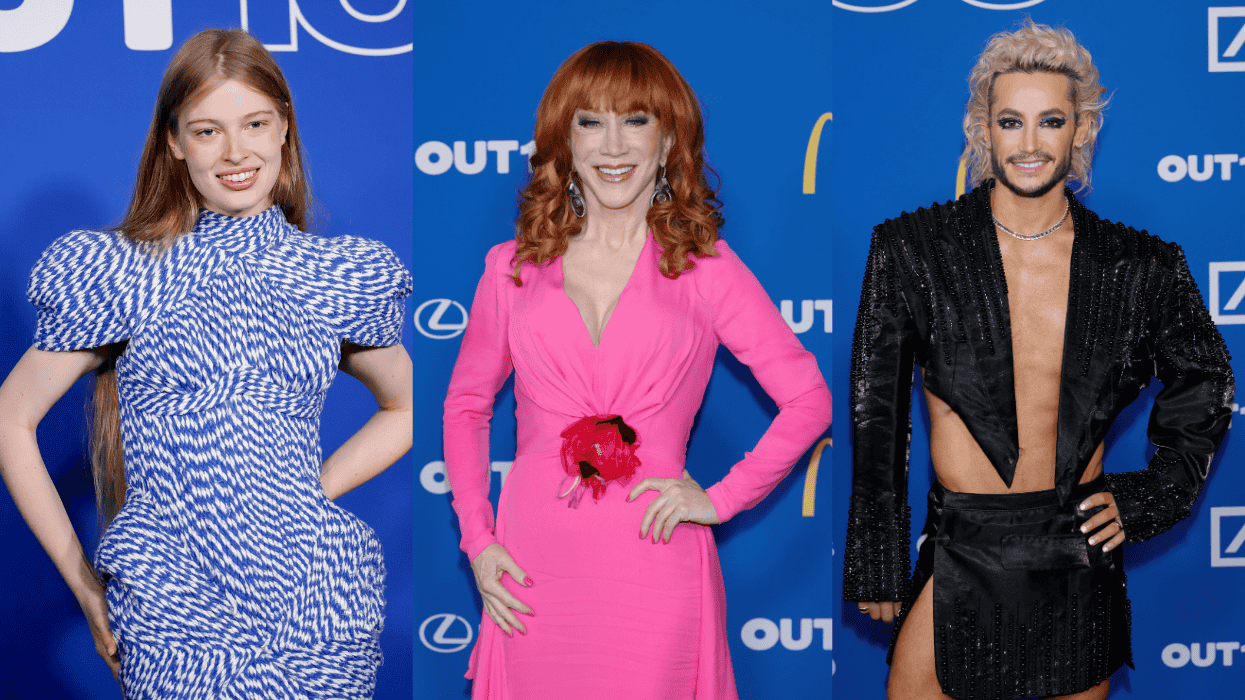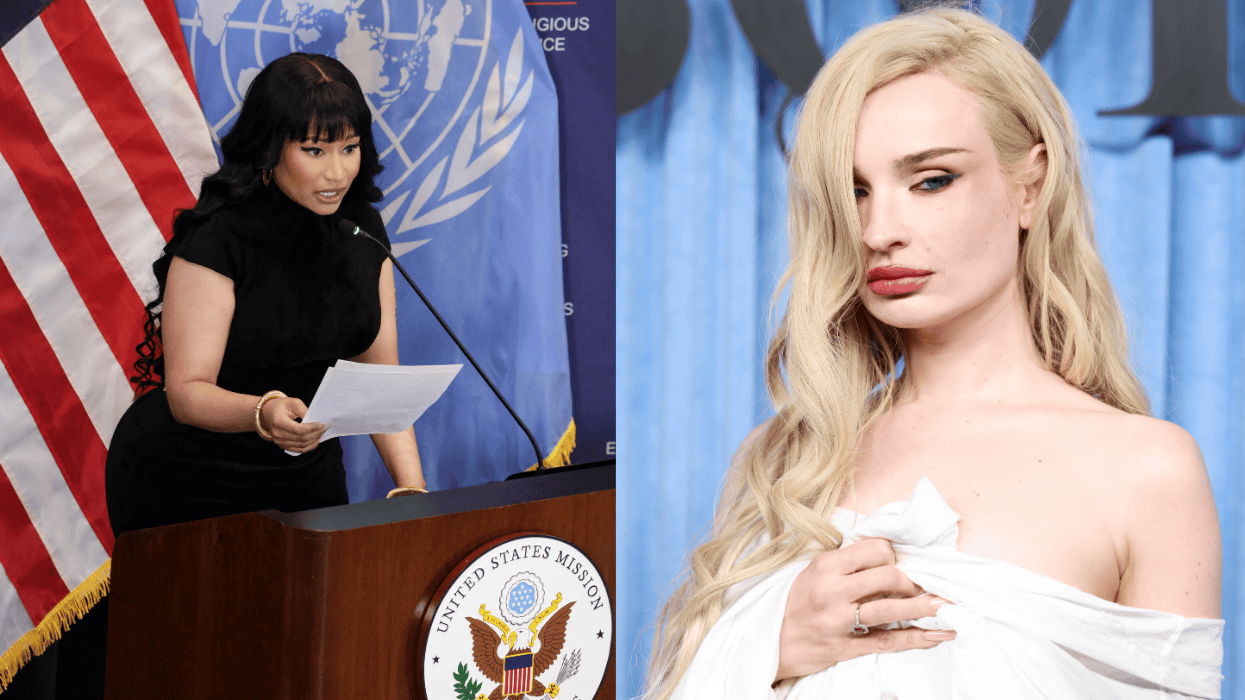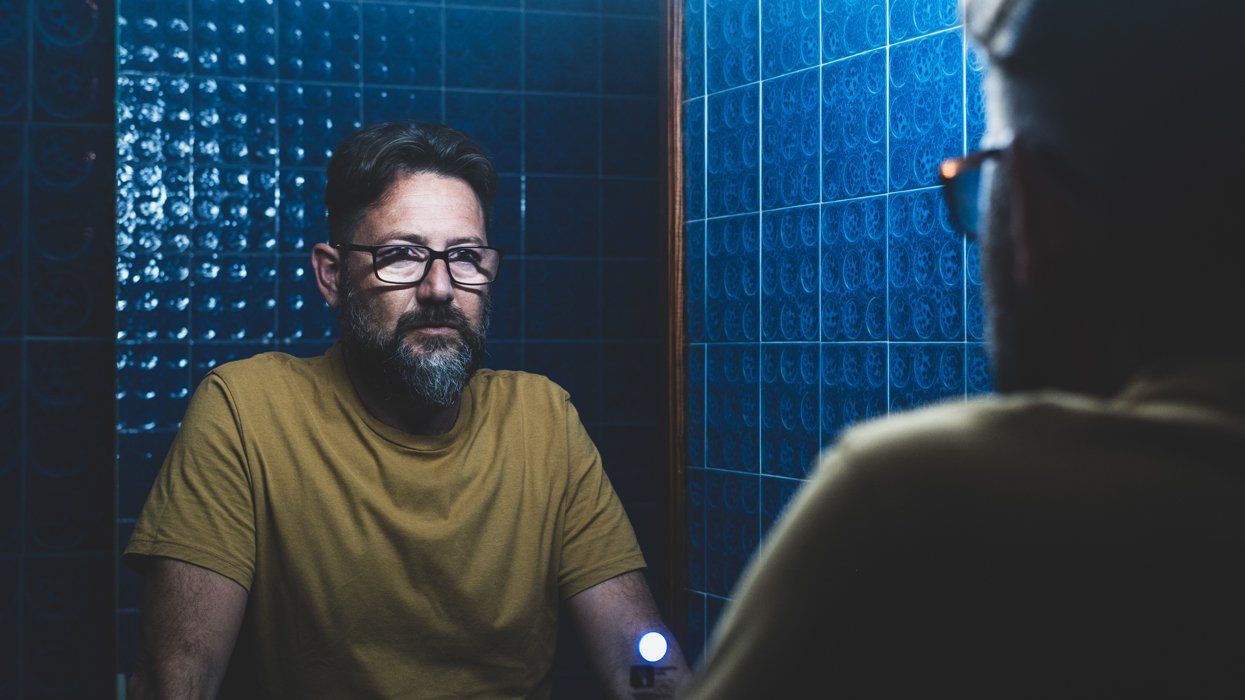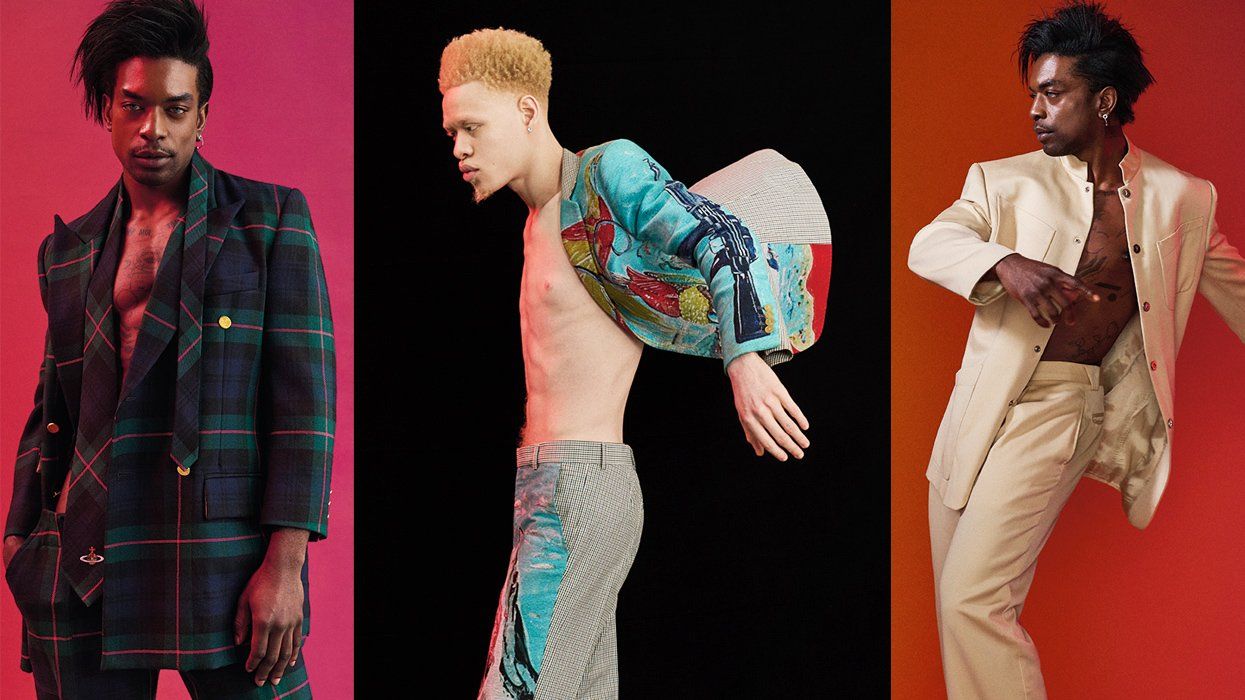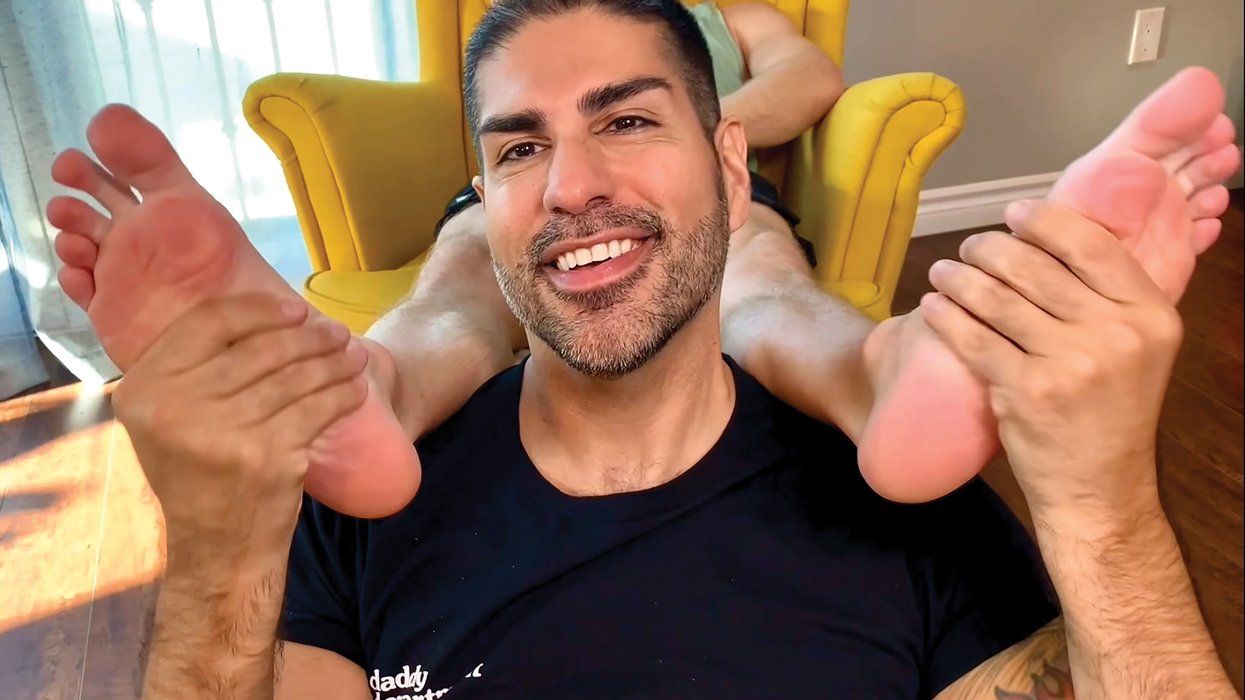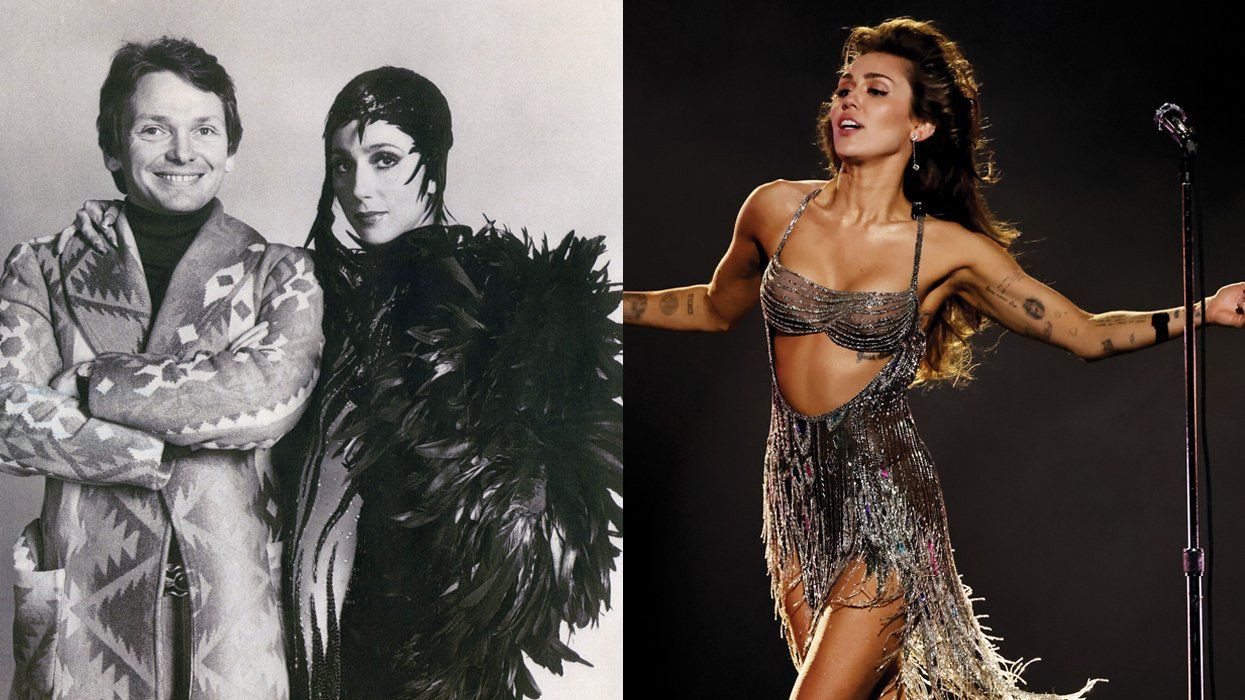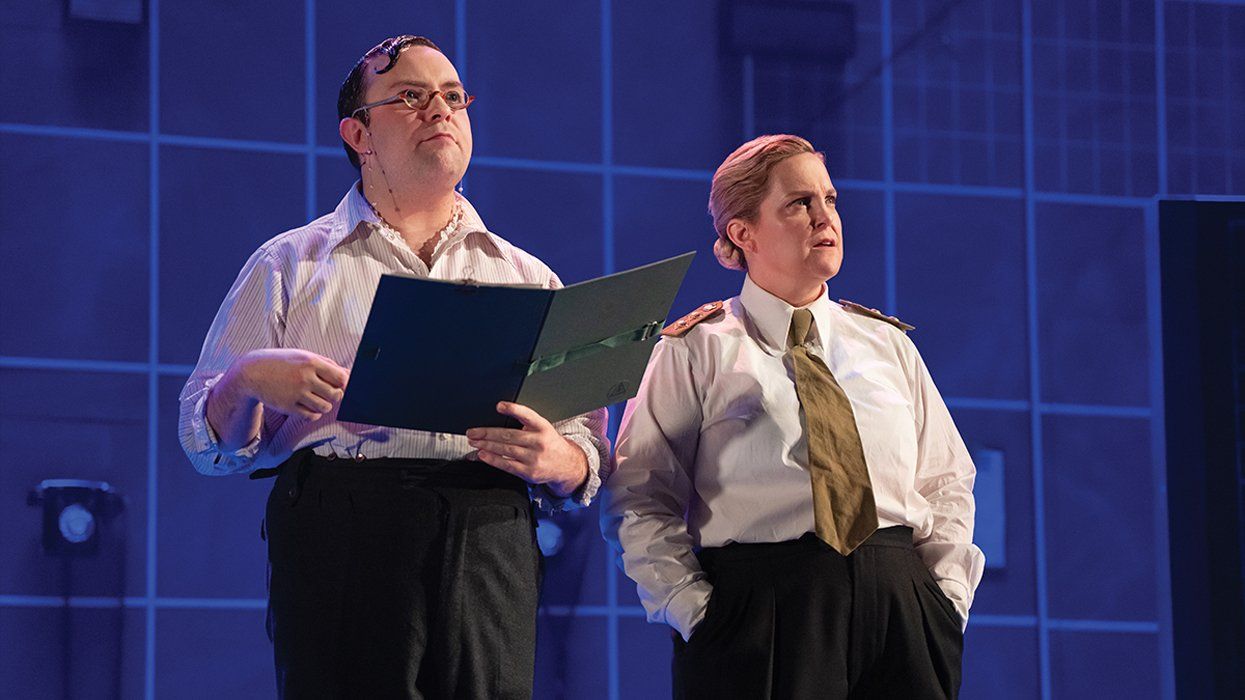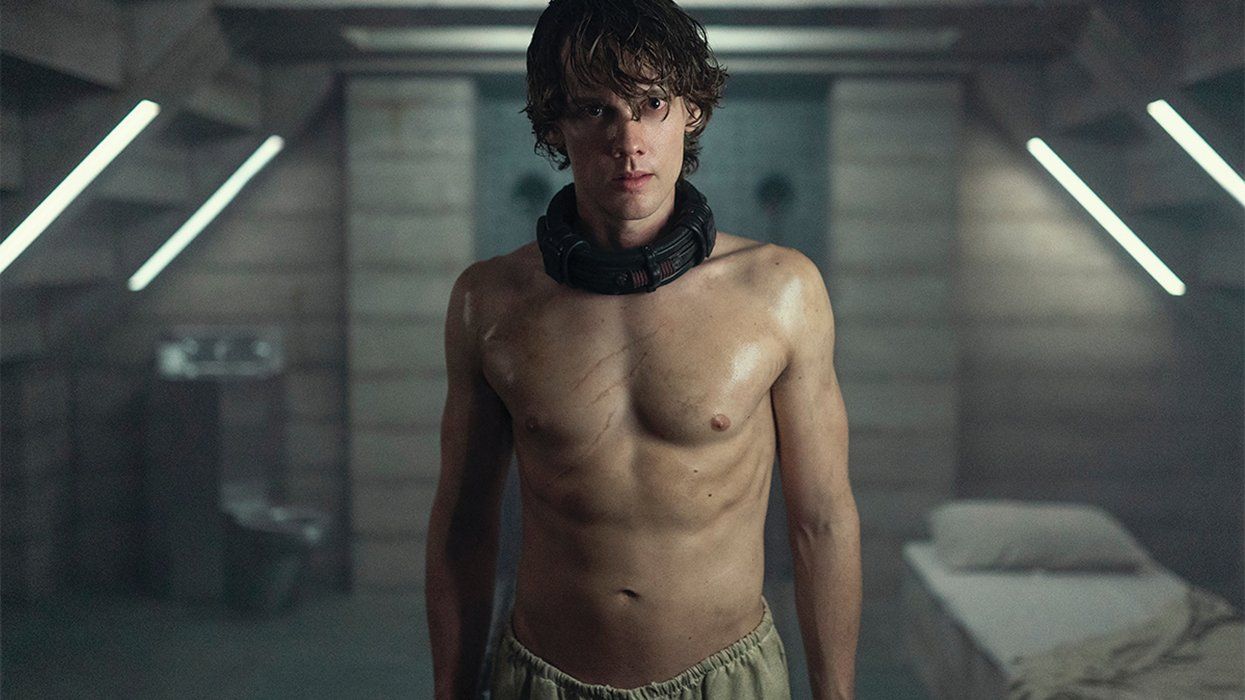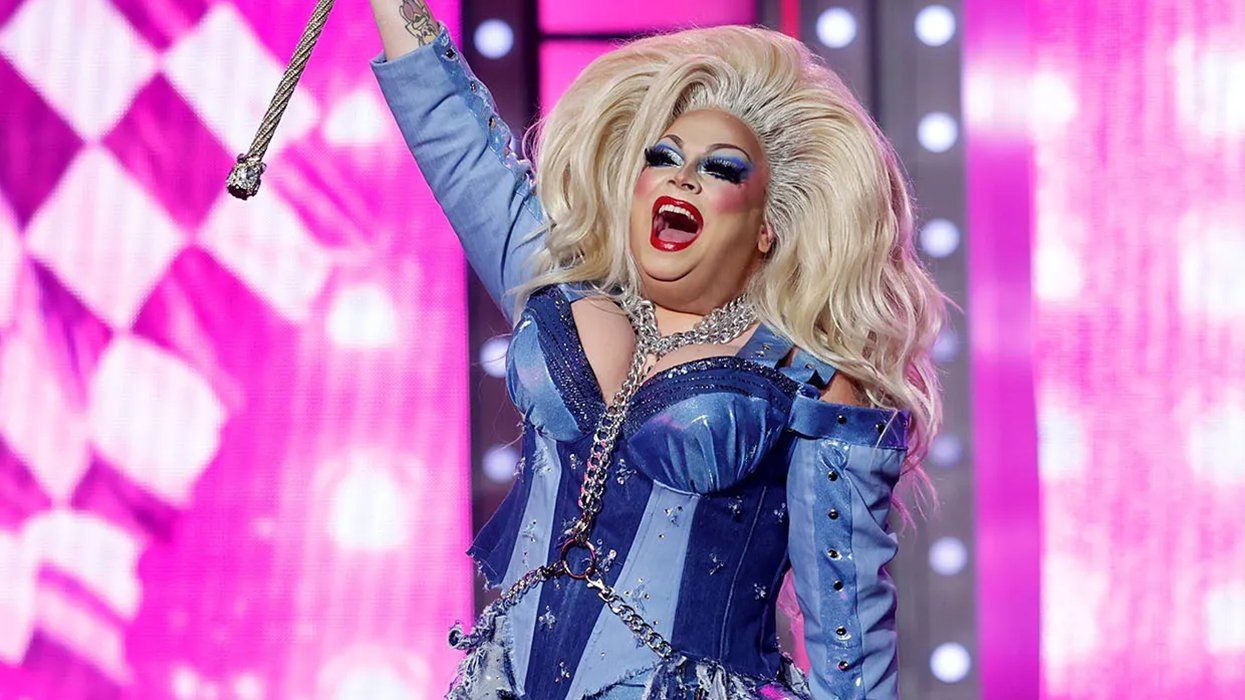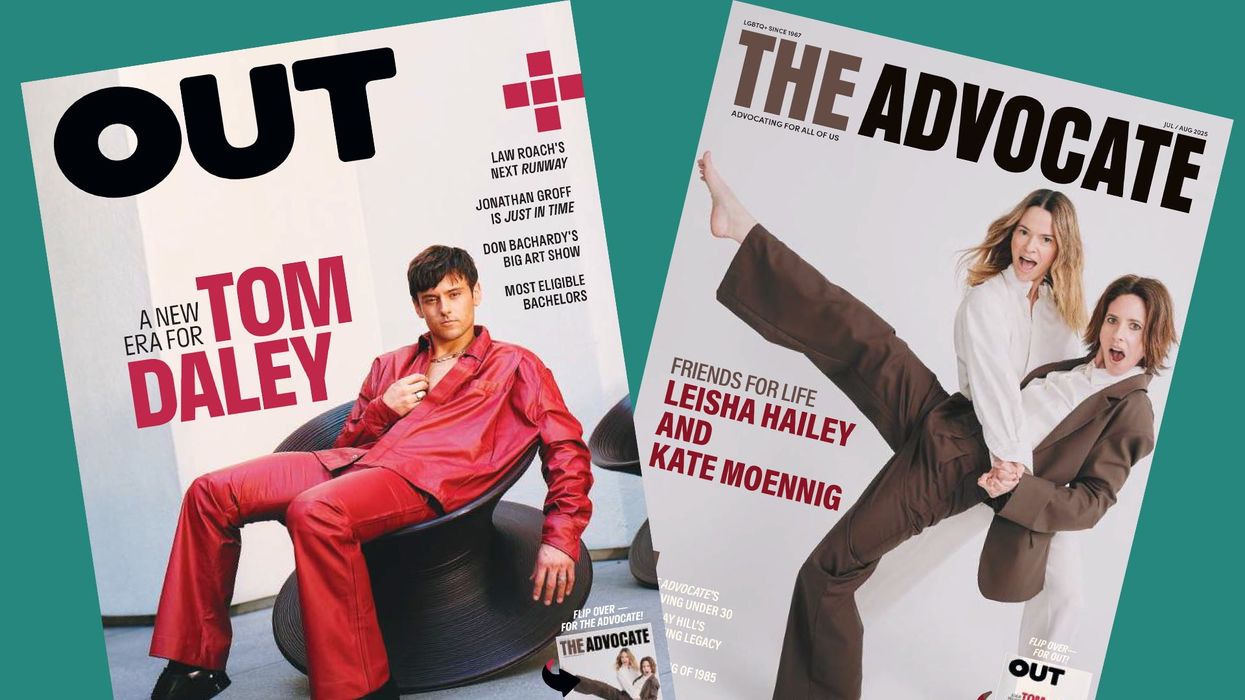Plastic is a haunting new short film about a mannequin in a small, bougie boutique who becomes infatuated with the store's sole shop girl. Told entirely through the inner monologue of the mannequin, the film explores the concept of obsession and lust for a person completely oblivious of their admirer through a solemn, cold, and gripping lense.
The film is a dark examination of impossible beauty standards and unhealthy comparison, written by Natalie Nicholas and directed by Peter Rosati, both LA-based visual artists who teamed up after an exciting and eye-opening conversation about how Nicholas' script could be interpreted onscreen.
You can check out more of Nicholas' work, which includes photography, makeup, and performance art, here. Rosati illustrates, designs, and animates under the monker Boy Bison--you can check that work out here and more of his films here.
We're happy to premiere Plastic today on OUT. Take a look, then read our conversation with the filmmakers below:
OUT: Walk me through how the idea for this film grew? What was the initial inspiration?
Nicholas (screenwriter): The way the script came about was very unlike how I usually sit down to write. I saw a picture in a magazine of a bleeding mannequin leg, and then just started writing. As a young woman who has worked in retail and who is just existing in this world, I can't help but notice the theme of 'non-acceptance of self.' It has been tugging at my heart strings for quite some time now.
I met Peter on another short film production where I was the makeup artist and he was the director. I loved the way he worked on set, and after seeing his other work I knew he would be the perfect director for Plastic. With Peter's creative eye and an incredibly talented crew, I watched the original script transform into the beautiful butterfly it is now.
Lorin Angelica Doctor as Cathy.
A big takeaway for me from this was the theme of obsessing over someone who literally has no idea you exist--I wonder if either of you can speak to your own experience with that. Is there a statement being made here?
Nicholas: I think one of the best things about this film is that there is no way to misinterpret it. That said, that was definitely something Peter and I thought about! I think, as humans, we are all capable of projecting an idea of the future onto someone else. My therapist says, "Are you mourning the loss of this person? Or are you mourning the loss of the dream?" (The dream of what you thought would be). It's usually the latter. And even though Quinn (our mannequin) seems like she's in love with Cathy, I think the real infatuation is with Cathy's "alive-ness." Cathy is a woman who is lost inside herself. She has a quieter version of the same obsession for Quinn that Quinn has for Cathy. Cathy's dream is to be like Quinn, Quinn's dream is to be like Cathy. Neither have an understanding or love for who they are and that's the theme that's really gut wrenching to me: Non-acceptance of self.
In the end, they both get their wish. Cathy lays on the pavement, visibly without wounds, looking perfectly placed. Quinn's arm reaches for Cathy as it bleeds.
Rosati (director): On the surface, we see a relationship that's totally one sided and would be literally impossible to ever come to fruition. It's "sweet," but also a little creepy. However, it's really cool to see that relationship from the narrator's POV, to experience Cathy as she sees her.
A second layer is infatuation or falling in love with this projected idea of who someone is. Our narrator sees Cathy as this perfect, beautiful, happy person who is everything she wishes she could be (alive being a key part of that .. even a fly can be closer to Cathy than she can), but the audience can clearly see that Cathy is not perfect and is not happy. One of my favorite scenes is when Cathy dresses the narrator and we see Cathy close up for the first time. For the narrator, this is a beautiful, intimate moment between the two of them that she wants to last for ever, but Cathy clearly looks sad and empty. There's some twisted beauty in how the narrator would literally live/die for this woman who she doesn't even know at all.
The film is set in a bougie little boutique--what was the significance of the setting?
Rosati: Initially in the script was set in big department store. Natalie and I talked about it though and decided a smaller boutique would make a more powerful impact. For me, entering a lux boutique can make you feel like an outsider. I was hoping to create a space in which our narrator's insecurities would be heightened. She's not good enough. She's not pretty enough. She's not *alive* enough. She compares herself to the wealthy, beautiful, charming customers in the store. Of course, they are all putting on fronts as well. It's like taking everyone's instagram life at face value. It immediately makes you feel inferior.
Nicholas: I've worked in two separate high-end consignment stores that were about the same size of our store in Plastic. It was so oddly intimate. The same customers would come in, shop and vent about what was going on in their life. I found myself playing therapist rather than Sales Associate. I was constantly surrounded by the same people who were only pretending to be happy and constantly striving to be something they're not.
What about the significance of audio in this film?
Rosati: Our post sound team truly brought this story to life and if the finished piece is worth anything I really think it's because of their hard work and creativity. The audio plays a tremendous role in bringing us into the narrator's world. I love using audio when directing and on set I really relied on the post sound team to pull off some important moments. They elevated the movie for sure. I gotta give some credit to sound designer: Chris Battaglia, mixer: Cody Skully, and composer, Jacob Rosati (my brother). And of course Sean Hokanson on Location Sound.
This was a hyper low budget project which Natalie was able to keep that way without us feeling restricted. The cast and crew were unpaid professionals who came on because they were into the story and wanted to collaborate. Everyone put in a lot of talent and time. Watch the end credits again and give a round of applause to all the names listed there. Plastic was a very rewarding set to be on thanks to Natalie and thanks to everyone on the crew.





